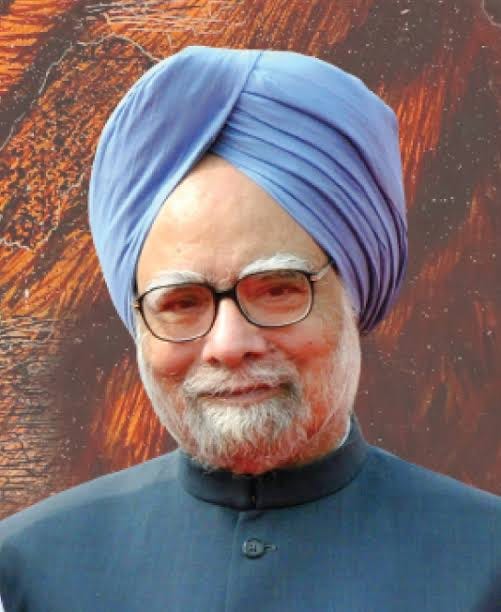The Last of the Manmohanicans: A Tribute to Sardar Manmohan Singh
Proper mix of intellectual rigour and executional vigour.
The Last of the Manmohanicans: A Tribute to Sardar Manmohan Singh
In the annals of Indian history, Dr. Manmohan Singh will be remembered as a statesman whose quiet dignity and intellectual rigor stood tall against the backdrop of a volatile and often cacophonous political landscape. The narrative of his life, from the dusty fields of Gah in present-day Pakistan to the corridors of power in New Delhi, is not merely one of personal triumph but a testament to a leadership ethos rooted in humility, resilience, and service.
An Architect of Modern India
For those who lived through the economic crisis of 1991, Manmohan Singh is not just a name; he is an emblem of transformation. As Finance Minister, his vision and bold reforms pulled India back from the brink of bankruptcy. The liberalization policies he spearheaded dismantled stifling regulations, opened doors to global trade, and ignited an economic revolution that propelled millions out of poverty. His understated declaration in Parliament—"No power on earth can stop an idea whose time has come"—resonates even today as the turning point that redefined India's destiny.
Singh's tenure as Prime Minister (2004–2014) was marked by growth and inclusion. Initiatives like the Right to Information Act, the MGNREGA, and the India-US Nuclear Deal showcased his commitment to equitable development and India's strategic autonomy. However, his government’s second term was marred by allegations of corruption, and he faced scathing criticism for perceived passivity. Yet, even his fiercest detractors could not impugn his personal integrity, which remained a beacon of incorruptibility in an otherwise murky political sea.
A Leader Apart
Dr. Singh was a leader like no other—soft-spoken, scholarly, and unyielding in his commitment to the nation’s progress. In an era when loudness often substitutes for leadership, he let his work speak louder than words. His critics mistook his reticence for weakness, failing to grasp the strength it takes to prioritize governance over grandstanding.
But the respect he earned from the global community was unparalleled. World leaders hailed him as a man of vision and wisdom. At home, despite political attacks, his character and humility made him a figure of reverence, even for those who disagreed with his policies.
The Hyenas and the Hypocrisy
It is ironic, and perhaps tragic, that some of the very voices that sought to diminish his contributions during his life have now joined the chorus singing his praises. Those who tore into his honour and legacy, gnashing their teeth even as he lay in his hospital ICU bed, have no moral right to eulogize him today. Such hollow paeans do not erase the wounds inflicted by years of relentless criticism and opportunistic vilification.
Dr. Singh deserved better from his contemporaries, especially those who opposed him politically—better recognition of his foresight, better protection against political betrayal, and better appreciation for his sacrifices as well as achievements. His quiet grace in the face of such indignities is perhaps what sets him apart as a statesman whose legacy transcends the noise of politics.
A Man for All Seasons
In Dr. Manmohan Singh, India had a leader who embodied the virtues of intellect, integrity, and humility—a rare blend in any era. His story is a reminder that leadership is not about volume or vanity but about vision, values, and the courage to act in the nation's interest, no matter the cost.
To borrow the timeless words of Shakespeare, which capture the essence of this extraordinary man:
"His life was gentle, and the elements so mixed in him that Nature might stand up and say to all the world, 'This was a man.'"
Sardar Manmohan Singh RIP.
My Personal Interaction: A Man of Simplicity and Relentless Curiosity
During my tenure as Deputy Commissioner of Amritsar from 1992 to 1996, I had the privilege of witnessing the unassuming demeanor and relentless work ethic of Dr. Manmohan Singh, then Union Finance Minister. With his family based in Amritsar, he would often visit the city on strictly personal trips, making it clear that he did not want officers of the Income Tax and Customs Departments to call on him or disrupt their official work to attend to him. His preferred mode of travel was quintessentially modest—overnight trains, arriving in the early hours of the morning. True to his grounded nature, his first stop was almost always the Darbar Sahib. Accompanying him on the Parikrama was an experience in itself; his brisk pace left me, a man in my early 30s, breathless and humbled. Despite his stature, he was entirely unpretentious and deeply inquisitive, keen to understand how government programs were impacting the grassroots.
On one such incognito visit, while staying at the Circuit House, the local Commissioner of Income Tax barged in, uninvited and unannounced. Initially reluctant to meet him, Dr. Singh’s demeanour softened when I mentioned that my wife worked as an Assistant Commissioner of Income Tax under the same “high” official. With a characteristic smile, he remarked, "Then we must serve him tea as well." This moment captured the essence of his humility and humanity, a rare quality in someone of his stature.






A poignant tribute to the beloved former PM, I especially agree with your point about the Hyenas and Hypocrisy!